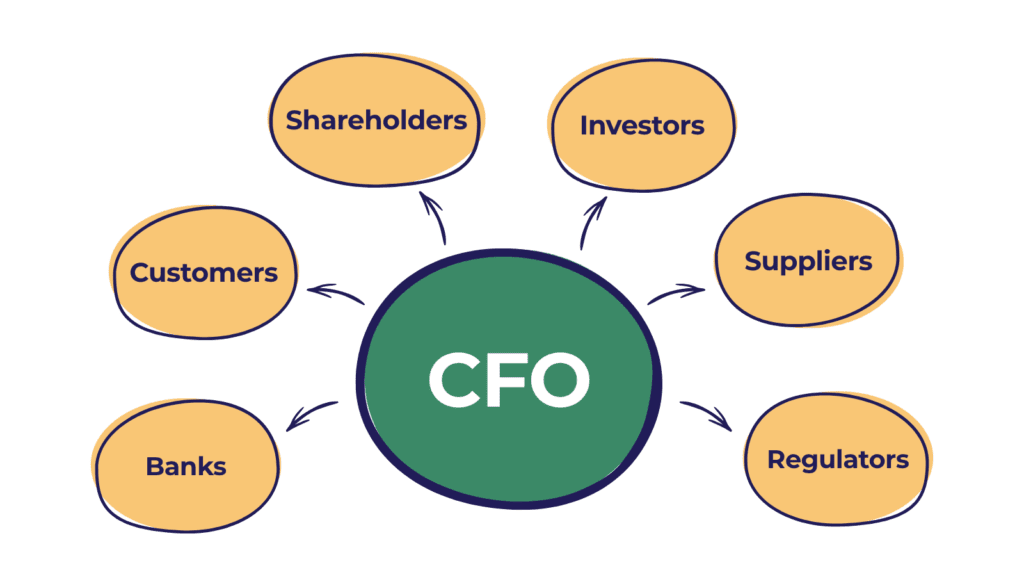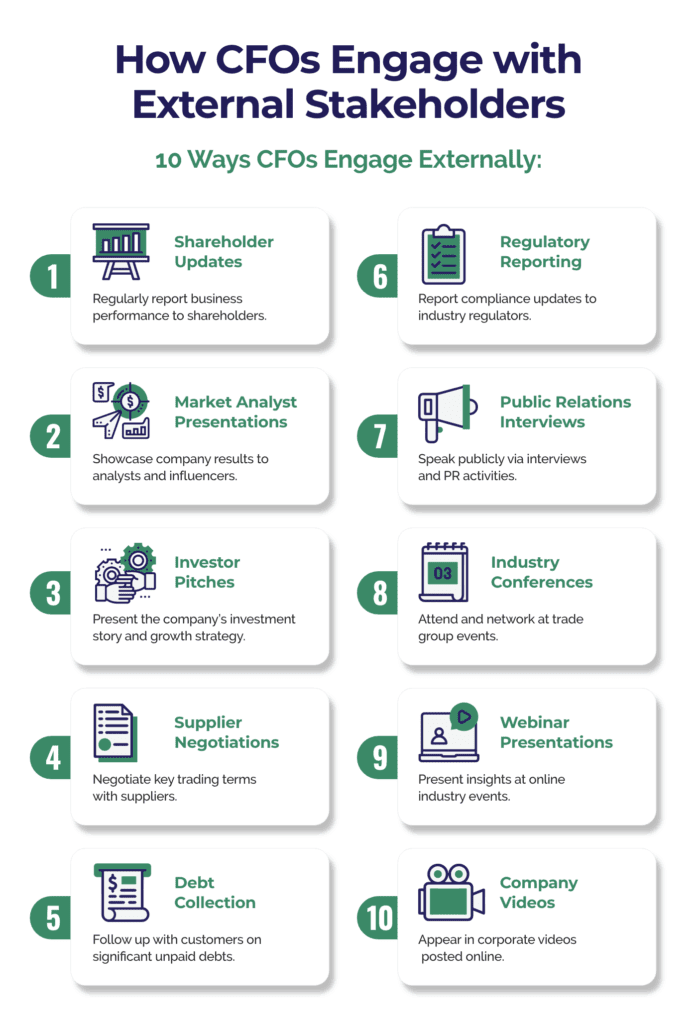Why External Leadership Matters

Why CFOs Must Represent the Business Externally
As a key part of the leadership team, your role isn’t just internal.
CFOs are often the face of the business to the outside world — representing the company to investors, banks, customers, suppliers, and regulators.
Each external stakeholder has different interests, goals, and expectations.
Understanding how to manage these relationships is critical to protecting your company’s reputation and driving long-term success.
Here are some of the key external groups every CFO must work with:

Why External Representation Is Essential for CFO Success
Engaging with external stakeholders is a critical part of the CFO’s role.
The way you communicate, negotiate, and build relationships shapes how others see your company — and directly impacts their willingness to support your success.
Every interaction matters.
- Whether you’re speaking to investors, suppliers, regulators, or customers, you’re not just representing finance — you’re representing the entire business.
Here are ten ways CFOs typically interact with external parties:
- Updating shareholders on business performance
- Showcasing results to market analysts
- Presenting the investment story to potential investors
- Negotiating key terms with suppliers
- Following up on major outstanding debts with customers
- Reporting compliance to regulators
- Giving interviews through PR teams
- Attending industry trade conferences
- Presenting at webinars and industry events
- Featuring in company videos shared online
Managing these relationships effectively builds credibility, protects your brand, and supports growth.
To succeed, you need more than financial expertise — you need gravitas, charisma, strong communication, and the confidence to lead even under pressure.
Why External Representation Builds (or Breaks) CFO Credibility
As a CFO, you’re not just managing numbers — you are one of the faces of your company.
The way you represent your business externally matters.
Your confidence, clarity, and composure directly influence how investors, partners, customers, and the wider market view your company.
If you can’t represent the business well, it damages trust — making it harder to secure investments, partnerships, or opportunities for growth.
When you communicate with calm authority, you:
- Build trust in the leadership team
- Create confidence in your business plan
- Provide reassurance to investors and external stakeholders
- Strengthen your company’s reputation
- Boost internal morale and motivation, driving higher productivity
How to Represent Your Business Effectively
✅ Be Honest
Always be transparent — about both wins and challenges.
Hiding problems damages credibility and can hurt long-term relationships.
✅ Know Your Financials
Speak confidently about your business without hesitation.
The more prepared you are, the more trust and authority you project.
✅ Stay Positive
Put a realistic but optimistic spin on challenges.
This shows resilience, belief in the company’s future, and helps others stay motivated even during tough times.
Your ability to build trusted relationships with external stakeholders — and to communicate clearly and confidently — has a direct impact on how much belief and support your business will inspire.
But recognising that value is only the first step.
The next is building the skills and confidence to lead with real impact at the highest level.
That’s exactly what our Future CFO Program is designed to do.
If you’re ready to explore how this program can support your journey to CFO — or help you thrive once you’re in the role — join our free preview event.
🔗 Register here.






